This month on the blog, I’ve got some simple, herbal home remedies for you with ingredients you may already have in your kitchen. Today’s recipe is a homemade Herbal Cough Syrup that features an herb that you’ve probably been cooking with for years—thyme. While thyme might not be the first herb you think of when you come down with a chest cold or bronchitis, it is an amazing herb for supporting the respiratory system.
This page may contain affiliate links, which means if you purchase through my links I get a small commission, but it doesn’t cost you anything extra. Thank you for supporting my blog!
Traditional Medicinal Uses of Thyme
Many people think of thyme more as a seasoning than as a medicinal herb but thyme has a long history in herbal medicine. Traditionally, thyme was used as a strewing herb. It was thrown on the floor with other aromatic herbs to freshen and clear bacteria and viruses from the air. Because it is strongly anti-microbial, it was also used for many types of bacterial infections.
During the Black Plague, people who used aromatic, antimicrobial herbs like thyme seemed less likely to get sick than those who did not. In fact, it is said that thyme is one of the main herbs used by thieves who robbed the homes of plague victims. Most of the thieves managed to escape the plague by using highly aromatic, antimicrobial herbs to protect themselves.
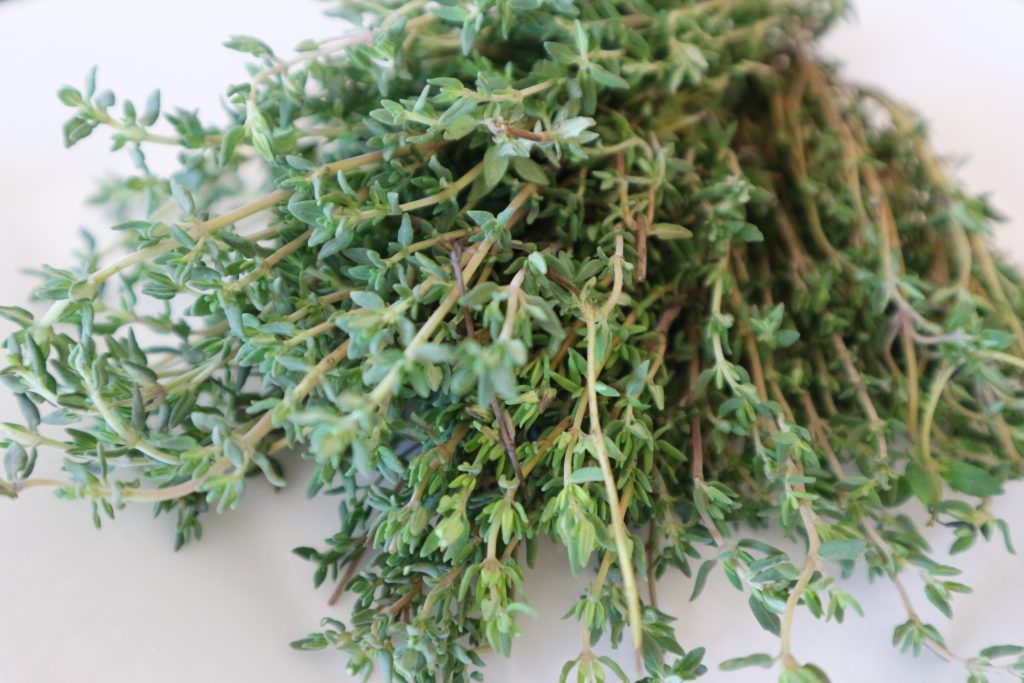
Using Thyme for Respiratory Support
Thyme is probably most well known as being an antimicrobial with an affinity for the lungs. It is full of volatile oils and is pungent, warming, drying and astringent (it tightens and tones tissues.)
If you want to experience this for yourself, prepare a cup of thyme tea (using either the fresh or dried herb) and let it steep for about 5-10 minutes. Because thyme is full of volatile oils, keep your tea cup covered as it steeps and only steep it a short time as the oils are extracted quickly and will get bitter the long it infuses.
Thyme for the Throat & Lungs
In the mid 1600’s, the herbalist, physician and botanist, Nicholas Culpeper described thyme as “a noble strengthener of the lungs, as notable a one as grows.” This has proven to be true; thyme along sage (another familiar culinary herb,) are both good at strengthening the lungs. If you enjoy sage, you might also like to try this cough remedy using fresh sage.
Thyme can be a good herb for both relieving coughing spasms (such as whopping cough) and for helping to thin mucus so it can be cleared from the lungs. This in turn, makes our coughs more productive (in expelling the mucous) and less irritating. It is especially good for mucous that feels “stuck.” It can be an extremely helpful herb in supporting recovery from coughs, bronchitis, and chest colds.
Not only can thyme help the lungs, it also has a soothing action on the throat when used as a gargle and can be helpful for sore throats, laryngitis, and tonsillitis. Simply make a strong cup of tea and use the tea to gargle with.
Thyme for Congestion
Because thyme is astringent, it is very helpful at relieving congestion. It helps to tone and tighten the tissues, reduces any swelling and inflammation and opens up the bronchioles.
Thyme’s antiseptic qualities help to fight infection at the same time.
A couple of other herbal remedies you could take alongside of the Homemade Herbal Cough Syrup are Fire Cider, Elderberry or Immune Booster Tea and/or Echinacea Tincture . If you also have a sore throat, try gargling with some thyme tea or spray some echinacea tincture at the back of your throat.
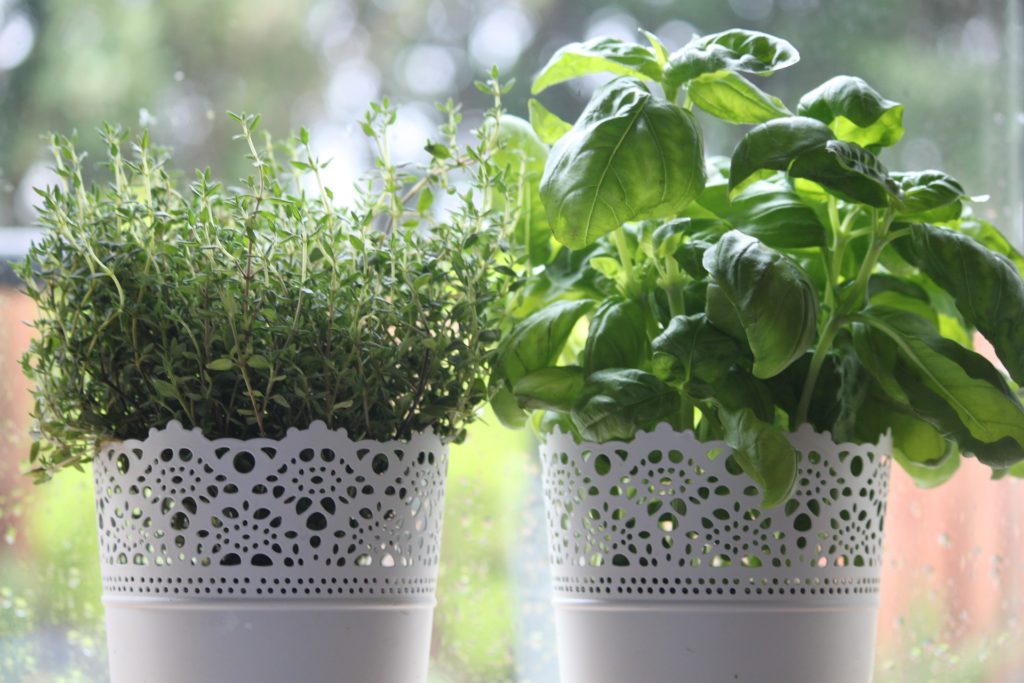
Using Thyme Safely:
Avoid thyme in large amounts if you are pregnant or on blood clotting medications. Consuming normal culinary amounts is safe.

How to Make a Homemade Herbal Cough Syrup with Thyme, Lemon & Ginger
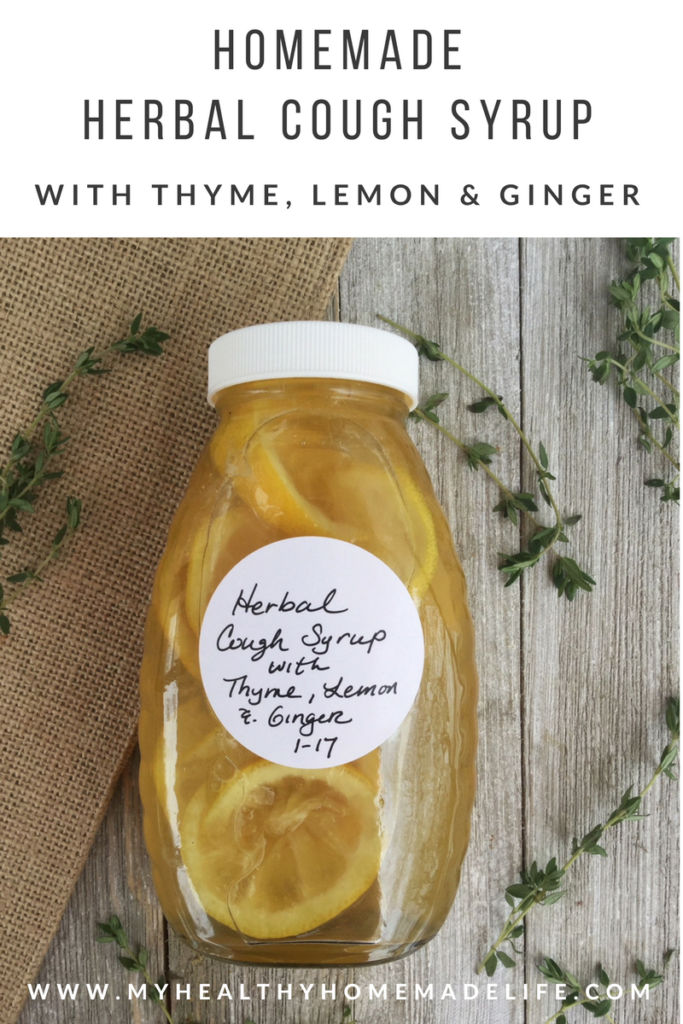
Jennifer Prentice @ My Healthy Homemade Life
Yields 1 cup
An herbal cough syrup that helps relieve spasmodic coughing and helps to clear mucus from the lungs.
5 minPrep Time
15 minCook Time
20 minTotal Time
4.6 based on 5 review(s)
Ingredients
- 1 cup water
- 1" knob of ginger, grated or minced
- 1/2-3/4 cup raw honey
- 1 lemon with peel, sliced thin and seeds removed (preferably organic)
- around 6 sprigs of fresh thyme, up to a handful or 1 tbsp dried thyme (fresh contains more volatile oils and is best. Lemon thyme can be substituted.)
Instructions
- Add 1 cup of water and the ginger to a small to medium size saucepan. Simmer on medium-low for 15-20 minutes until the water has reduced by half.
- While the water and ginger is simmering, mix and mash the lemon and honey together to release the juices from the lemon. Set aside.
- Once the water and ginger has reduced, bring the water to a low boil, then turn off the pot and add the fresh or dried thyme. Cover the pot for 5-10 minutes to steep.
- Strain the ginger, thyme and the lemon slices if desired (I usually leave the lemon slices.)
- Add the lemon, honey and ginger-thyme tea back to the pan and stir to combine. Pour your syrup into a glass bottle or jar and label and date.
- Store in the refrigerator for up to month or more.
- Take 1 tsp-1 tbsp every half hour or as needed. Children under 1 years of age should not consume honey.
Have you tried this recipe? Please let me know by leaving a comment below or sharing a comment or picture on my Facebook Page or on Instagram .
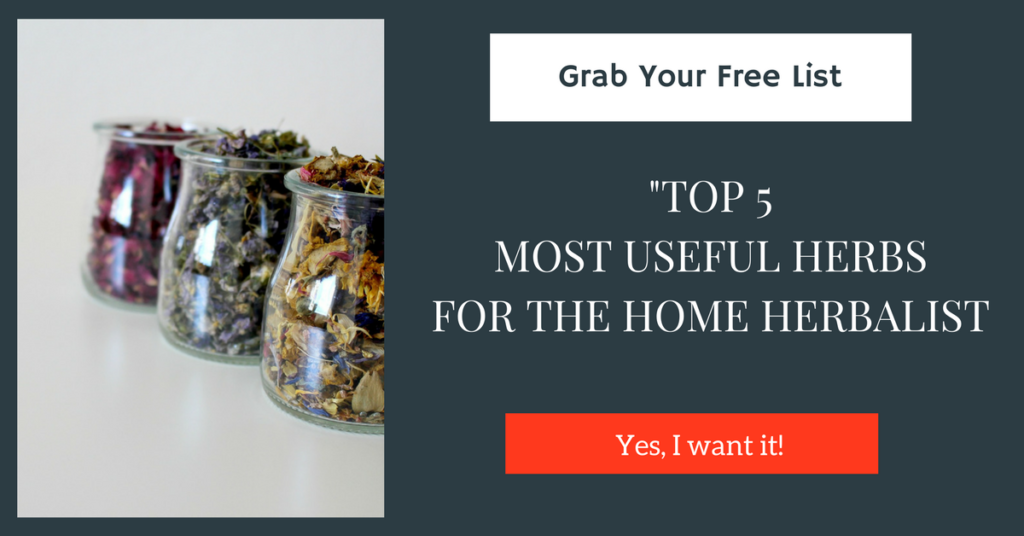
Resources:
Culpeper, Nicholas. (1653). The Complete Herbal. Retrieved from http://www.complete-herbal.com/culpepper/thyme.htm
Herb Mentor. http://www.herbmentor.com/
Hoffmann, David. (2003). Medical Herbalism: The Science and Practice of Herbal Medicine. Rochester, VT: Healing Arts Press.
Natural Herbal Living Magazine. Thyme issue.
The Herbal Academy of New England Introductory Course. www.theherbalacademy.com
Wood, Matthew. (2008). The Earthwise Herbal: A Complete Guide to Old World Medicinal Plants.
This site is for educational purposes only. It does not provide medical advice. Information found on myhealthyhomemadelife.com is meant to motivate you to make your own health care and dietary decisions based upon your own research and in partnership with your health care provider.
Subscribe Here


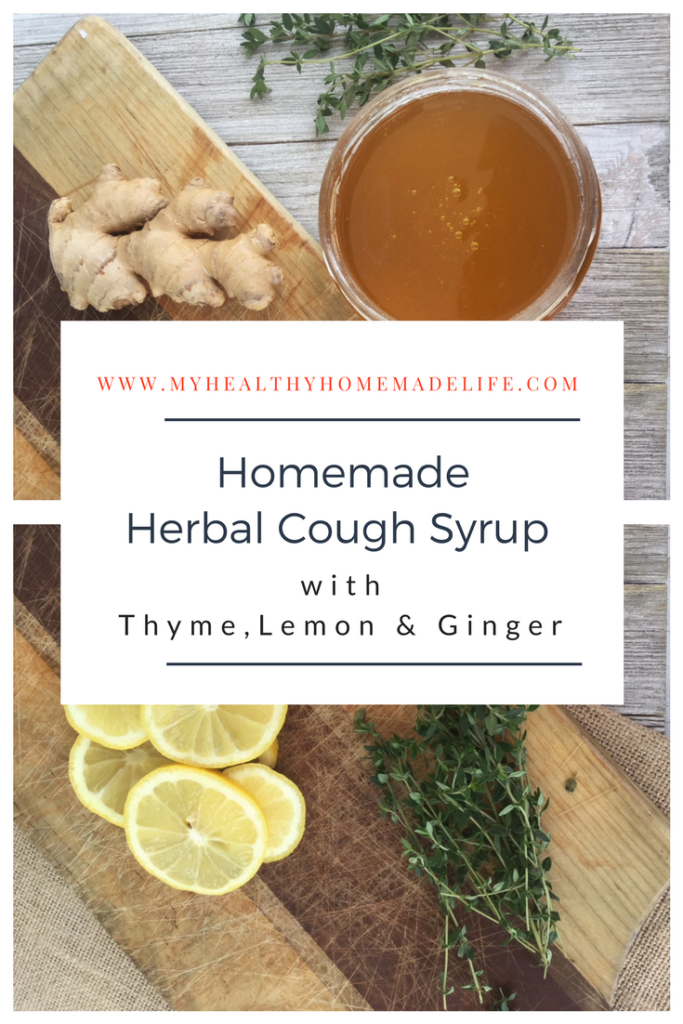
 Save Recipe
Save Recipe


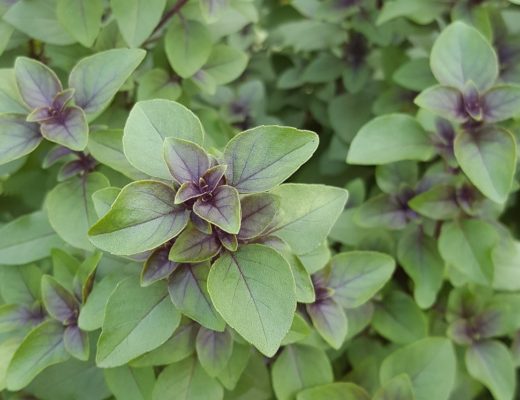
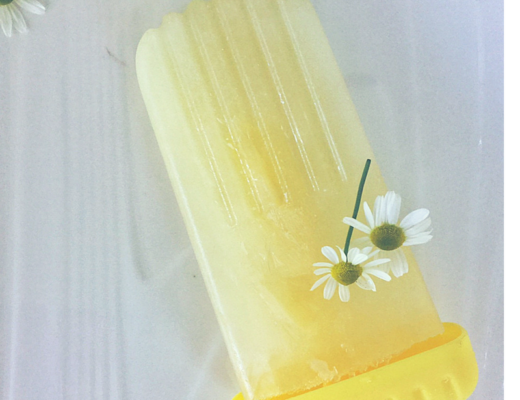
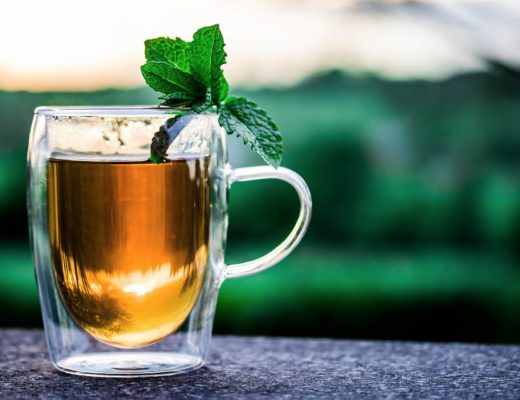
26 Comments